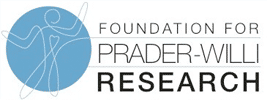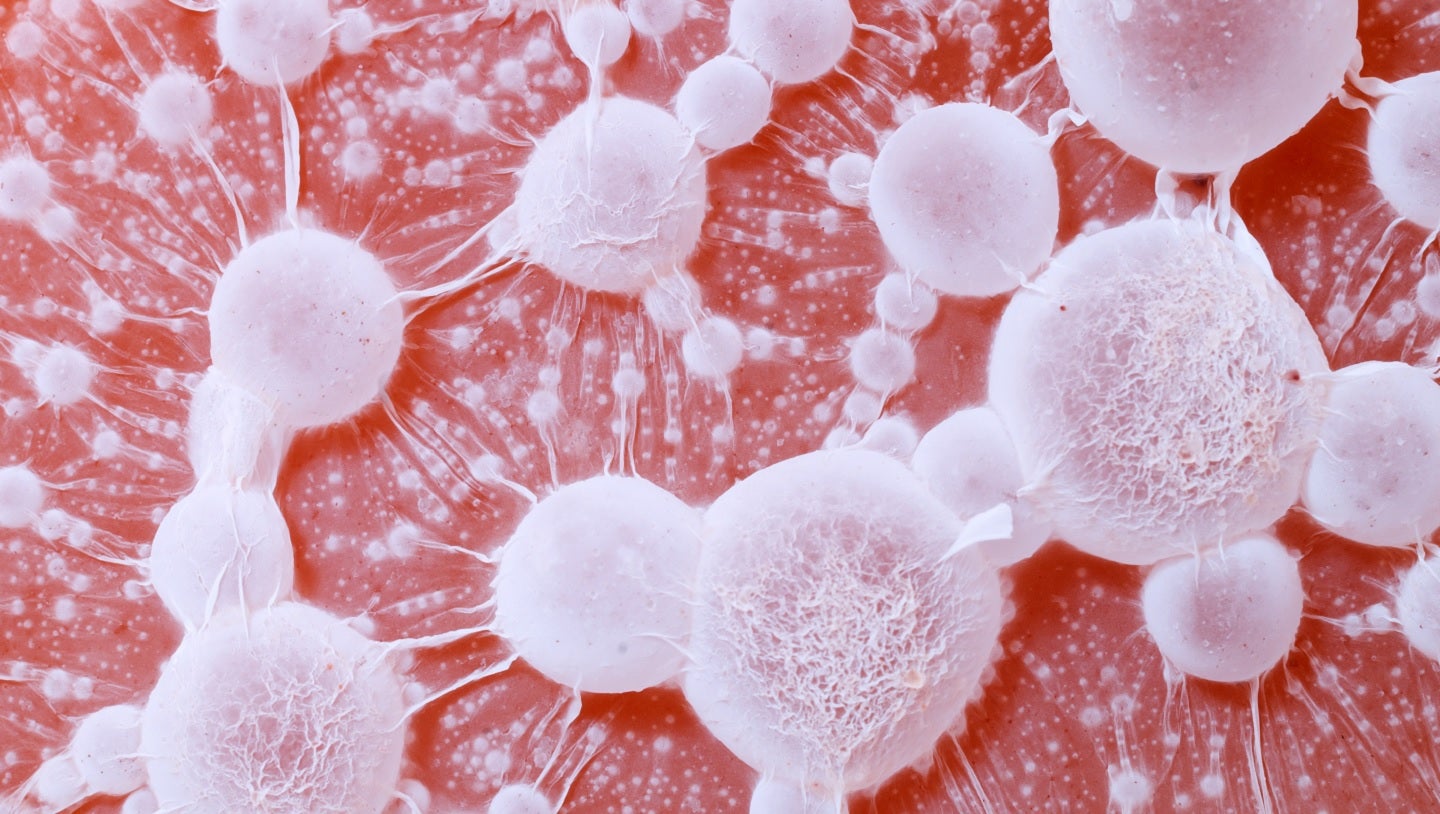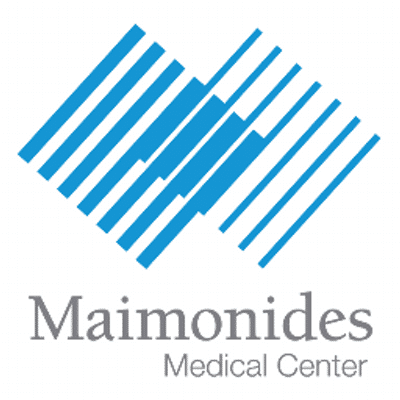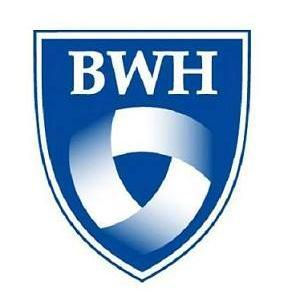预约演示
更新于:2025-09-21

Foundation For Prader-Willi Research, Inc.
更新于:2025-09-21
概览
标签
神经系统疾病
其他疾病
遗传病与畸形
小分子化药
疾病领域得分
一眼洞穿机构专注的疾病领域
暂无数据
技术平台
公司药物应用最多的技术
暂无数据
靶点
公司最常开发的靶点
暂无数据
| 排名前五的药物类型 | 数量 |
|---|---|
| 小分子化药 | 1 |
| 排名前五的靶点 | 数量 |
|---|---|
| Potassium channel(钾离子通道) | 1 |
关联
1
项与 Foundation For Prader-Willi Research, Inc. 相关的药物作用机制 钾离子通道激动剂 |
非在研适应症 |
最高研发阶段批准上市 |
首次获批国家/地区 美国 |
首次获批日期2025-03-26 |
14
项与 Foundation For Prader-Willi Research, Inc. 相关的临床试验NCT06144645
A Phase 3, Randomized, Double-Blind, Dose-Ranging Evaluation of Transcutaneous Vagus Nerve Stimulation (tVNS) to Reduce Temper Outbursts in People With Prader-Willi Syndrome (PWS)
The goal of the VNS4PWS clinical study is to test the efficacy, safety, and acceptability of transcutaneous vagus nerve stimulation (tVNS) treatment in people with PWS.
开始日期2024-01-08 |
申办/合作机构 |
NCT05939453
A Randomized, Double-Blind, Controlled Trial of Bright Light Therapy on All-Cause Excessive Daytime Sleepiness in Prader-Willi Syndrome
This is a placebo controlled clinical trial to assess the utility of light therapy as a sufficient treatment for excessive daytime sleepiness in patients with Prader-Willi Syndrome
开始日期2023-10-01 |
申办/合作机构 |
NCT05938543
Noninvasive Neuromodulation of a Novel Cerebellar Satiety Circuit in Prader-Willi Syndrome
This study uses a noninvasive technique called transcranial magnetic stimulation (TMS) to study hyperphagia and satiety in Prader-Willi syndrome.
TMS is a noninvasive way of stimulating the brain, using a magnetic field to change activity in the brain. The magnetic field is produced by a coil that is held next to the scalp. In this study, the investigators will be stimulating the brain to learn more about how TMS might improve hyperphagia in Prader-Willi syndrome.
TMS is a noninvasive way of stimulating the brain, using a magnetic field to change activity in the brain. The magnetic field is produced by a coil that is held next to the scalp. In this study, the investigators will be stimulating the brain to learn more about how TMS might improve hyperphagia in Prader-Willi syndrome.
开始日期2023-09-01 |
申办/合作机构 |
100 项与 Foundation For Prader-Willi Research, Inc. 相关的临床结果
登录后查看更多信息
0 项与 Foundation For Prader-Willi Research, Inc. 相关的专利(医药)
登录后查看更多信息
24
项与 Foundation For Prader-Willi Research, Inc. 相关的文献(医药)2025-06-01·FREE RADICAL BIOLOGY AND MEDICINE
Mitochondrial and microtubule defects in Exfoliation Glaucoma
Article
作者: Ganapathy, Preethi S ; DeVincentis Iii, Anthony F ; Knox, Barry E ; Wolosin, J Mario ; Ridilla, Marc ; Sieminski, Sandra ; Castro, Nileyma ; Bernstein, Audrey M ; Brown, Jamin S ; Venkatesan, Arunkumar ; Henty-Ridilla, Jessica L
Exfoliation Syndrome is an age-related systemic condition characterized by large aggregated fibrillar material deposition in the anterior eye tissues. This aggregate formation and deposition on the aqueous humor outflow pathway are significant risk factors for developing Exfoliation Glaucoma (XFG). XFG is a multifactorial late-onset disease that shares common features of neurodegenerative diseases, such as increased protein aggregation, impaired protein degradation, and oxidative and cellular stress. XFG patients display decreased mitochondrial membrane potential and mitochondrial DNA deletions. Here, using Tenon Capsule Fibroblasts (TFs) from patients without glaucoma (No Glaucoma, NG) and XFG patients, we found that XFG TFs have impaired mitochondrial bioenergetics and increased reactive oxygen species accumulation. These defects are associated with mitochondrial abnormalities as XFG TFs exhibit smaller mitochondria that contain dysmorphic cristae, with increased mitochondrial localization to lysosomes and slowed mitophagic flux. Mitochondrial dysfunction in the XFG TFs was associated with hyperdynamic microtubules, decreased acetylated tubulin, and increased HDAC6 activity. Treatment of XFG TFs with a mitophagy inducer, Urolithin A (UA), and a mitochondrial biogenesis inducer, Nicotinamide Ribose (NR), improved mitochondrial bioenergetics and reduced ROS accumulation. Our results demonstrate that XFG TFs have abnormal mitochondria and suggest that mitophagy inducers may represent a potential class of therapeutics for reversing mitochondrial dysfunction in XFG patients.
2024-04-01·Neurotherapeutics : the journal of the American Society for Experimental NeuroTherapeutics
Neuromodulation for the treatment of Prader-Willi syndrome – A systematic review
Review
作者: Ma, Ruoyu ; Wexler, Anna ; Okun, Michael S ; Halpern, Casey H ; Strong, Theresa V ; Foote, Kelly D ; Gunduz, Aysegul ; Chang, Andrew ; Qiu, Liming ; Miller, Jennifer L
Prader-Willi syndrome (PWS) is a complex, genetic disorder characterized by multisystem involvement, including hyperphagia, maladaptive behaviors and endocrinological derangements. Recent developments in advanced neuroimaging have led to a growing understanding of PWS as a neural circuit disorder, as well as subsequent interests in the application of neuromodulatory therapies. Various non-invasive and invasive device-based neuromodulation methods, including vagus nerve stimulation (VNS), transcranial direct current stimulation (tDCS), repetitive transcranial magnetic stimulation (rTMS), and deep brain stimulation (DBS) have all been reported to be potentially promising treatments for addressing the major symptoms of PWS. In this systematic literature review, we summarize the recent literature that investigated these therapies, discuss the underlying circuits which may underpin symptom manifestations, and cover future directions of the field. Through our comprehensive search, there were a total of 47 patients who had undergone device-based neuromodulation therapy for PWS. Two articles described VNS, 4 tDCS, 1 rTMS and 2 DBS, targeting different symptoms of PWS, including aberrant behavior, hyperphagia and weight. Multi-center and multi-country efforts will be required to advance the field given the low prevalence of PWS. Finally, given the potentially vulnerable population, neuroethical considerations and dialogue should guide the field.
2024-03-01·Pharmacogenomics
Pharmacogenomics for Prader-Willi syndrome: caregiver interest and planned utilization
Article
作者: Brown, Donna ; Strong, Theresa V ; Worthey, Elizabeth ; Bar-Peled, Yael ; Denton, Jessica J ; Richards, Jaimie L
Aim: The study aim was to determine caregiver interest and planned utilization of pharmacogenomic (PGx) results for their child with Prader-Willi syndrome. Methods: Caregivers consented to PGx testing for their child and completed a survey before receiving results. Results: Of all caregivers (n = 48), 93.8% were highly interested in their child's upcoming PGx results. Most (97.9%) planned to share results with their child's medical providers. However, only 47.9% of caregivers were confident providers would utilize the PGx results. Conclusion: Caregivers are interested in utilizing PGx but are uncertain providers will use these results in their child's care. More information about provider comfort with PGx utilization is needed to understand how PGx education would benefit providers and ultimately patients with PGx results.
4
项与 Foundation For Prader-Willi Research, Inc. 相关的新闻(医药)2024-04-24
SAN DIEGO Lipidio Pharmaceuticals, Inc. (Lipidio), a newly established biopharmaceutical company developing drugs to treat diseases associated with excess body fat, announced that it has received support from the Foundation for Prader Willi Research to help advance its lead therapeutic candidate GDD3898.
“Prader-Willi syndrome, or PWS, is a complex neurodevelopmental genetic disorder, and the most common orphan genetic cause of life-threatening childhood obesity. To further advance therapeutic development of new drugs to treat symptoms associated with PWS, the Foundation for Prader-Willi Research has recently begun to partner with companies, like Lipidio,” commented John Walter, CEO of the Foundation for Prader-Willi Research. “We are pleased to support Lipidio and the advancement of GDD3898, a promising program that aims to target the metabolic conditions associated with PWS. We look forward to working with Lipidio’s team of experts toward delivering a life-changing solution to patients and their families.”
In addition to receiving support from the foundation, Lipidio has built an experienced team, Board of Directors, and Advisory Board that includes many world-renowned experts in metabolic disease drug development. In parallel with this support, the company also announced that Dr. Nancy Hutson has joined the Board. Dr. Hutson previously served as Senior Vice President, Pfizer Global R&D and Director of Pfizer’s largest R&D site in Connecticut, serves on the Board of Directors and Advisory Board of Lipidio. While at Pfizer, she previously led the Department of Metabolic Disease which had research in diabetes, obesity, osteoporosis and cardiovascular disease, including modulating lipids and anti-hypertensives. Lipidio’s Board also includes Dr. Robert Ruffolo who served as the President of Research & Development, as well as Corporate Senior Vice President, of Wyeth Pharmaceuticals (now Pfizer) prior to his retirement. Dr Ruffolo was previously Senior Vice President and Director of Biological Sciences, Worldwide, at SmithKline Beecham (now GlaxoSmithKline).
“We are pleased to advance our lead program, GDD3898, in new indications associated with excess body fat” said J. Gordon Foulkes, Ph.D., CEO & Director of Lipidio. “We believe that we have assembled the right team, the right Board and the key scientific advisors to unlock the value in GDD3898 and look forward to advancing our development plans.” The Lipidio team has deep expertise in drug development and pharma partnering with a proven track record highlighted by over 100 INDs and more than 70 transactions with pharma. The Lipidio team is led by Dr. J. Gordon Foulkes, Ph.D., CEO & Director, who previously served as the founding CEO of Excaliard Pharmaceuticals (acquired by Pfizer), Executive Chairman of Redwood Biosciences (acquired by Catalent) and Managing Director at RiverVest Ventures. Prior to those roles, he led research and development for multiple biotechnology companies, including OSI Pharmaceuticals (acquired by Astellas).
FPWR is composed of thousands of parents, family members, researchers, and others who are interested in addressing the many issues related to PWS, including childhood obesity, developmental delays, psychiatric disorders, and autism spectrum disorders. The mission of FPWR is to eliminate the challenges of Prader-Willi syndrome through the advancement of research and therapeutic development. FPWR supports cutting edge research studies around the world to advance the understanding of PWS, and collaborates with research institutions, pharmaceutical companies and the FDA to advance new treatments that will help those with PWS to one day lead independent lives. To date, FPWR has funded over $14 million in PWS research. For more information please visit https://www.fpwr.org/.
Lipidio Pharmaceuticals is focused on developing drugs to treat diseases associated with excess body fat and its lead program, GDD3898, is being investigated for the treatment of nonalcoholic steatohepatitis (NASH) and Prader Willi syndrome (PWS), an orphan disease, and anti-psychotic drug induced weight gain (AIWG). Lipidio is headquartered in San Diego, CA. To learn more, please visit https://lipidiopharma.com/.
Amy Conrad Juniper Point 858-366-3243 amy@juniper-point.com
并购高管变更
2023-05-05
Palobiofarma’s PBF-999 has been developed to treat solid tumours such as colon cancer. Credit: Nemeziya / Shutterstock.com.
Spanish biopharmaceutical company
Palobiofarma has collaborated
with the Foundation for Prader Willi Research (FPWR) to develop its PBF-999 to treat Prader Willi syndrome (PWS).
The company has received a new venture philanthropy award as a convertible loan from FPWR.
Recommended Reports
Reports
Von Willebrand Factor (VWF) Drugs in Development by Therapy Areas and Indications, Stages, MoA, R...
GlobalData
Reports
LOA and PTSR Model - Ocrelizumab in Relapsing Remitting Multiple Sclerosis (RRMS)
GlobalData
View all
It intends to utilise the funding from FPWR to partially fund its ongoing Phase II clinical trial of PBF-999, a dual adenosine A2a receptor antagonist/phosphodiesterase 10 (PDE-10) inhibitor.
The PDE-10 inhibitor has been developed to treat ‘cold tumours,’ such as colon cancers. It has already been assessed in three clinical trials.
Following observations of an appetite-reducing effect using PBF-999, Palobiofarma designed a clinical trial to assess its efficacy and safety in reducing hyperphagia (excessive hunger) in PWS adults.
Palobiofarma CEO Dr Julio Castro stated: “We are excited to receive this funding from FPWR, which will enable us to continue our mission of developing a treatment to help patients with PWS.”
Led by Dr Assumpta Caixàs, the clinical trial is being conducted at the university hospital Parc Taulí in Sabadell, Spain.
FPWR executive director Susan Hedstrom stated: “Effective treatments for PWS hyperphagia are sorely needed and we are pleased to support Palobiofarma’s efforts on this front.”
In 2018, Palobiofarma
commenced recruitment of participants
for a Phase I clinical trial of PBF-999 in patients with solid tumours.
Conducted at the Vall D Hebron hospital in Barcelona, Spain, the trial was designed to assess the tolerability and safety of PBF-999.

临床1期临床2期
2023-05-04
[May 4, 2023] – [Pamplona, Navarra] – The Foundation for Prader Willi Research (FPWR) has provided a new venture philanthropy award, in the form of a convertible loan, to Palobiofarma S.L., a Spanish biopharmaceutical company focused on developing innovative treatments for serious diseases. Palobiofarma has a robust pipeline of promising drug candidates that are currently undergoing clinical development for a range of diseases, including cancer, respiratory, and metabolic disorders supported by an experienced team.
FPWR’s philanthropic investment will be used to partially fund Palobiofarma’s ongoing Phase 2 clinical trial to develop PBF-999 for the treatment of Prader Willi syndrome (PWS). PBF-999 is a phosphodiesterase 10 inhibitor that has been evaluated in three previous clinical studies. Observations of an appetite-reducing effect have led Palobiofarma to design a clinical study to test this compound in adults with PWS to evaluate safety and efficacy in the reduction of hyperphagia (excessive hunger). The clinical study is being conducted in the University Hospital Parc Taulí in Sabadell, Spain under the leadership of Dra. Assumpta Caixàs.
“We are excited to receive this funding from FPWR, which will enable us to continue our mission of developing a treatment to help patients with PWS,” said Dr. Julio Castro, CEO of Palobiofarma.
“Effective treatments for PWS hyperphagia are sorely needed and we are pleased to support Palobiofarma’s efforts on this front,” said Susan Hedstrom, Executive Director of the Foundation for Prader-Willi Research.
The Foundation for Prader-Willi Research is a 501(c)(3) non-profit organization dedicated to eliminating the challenges of Prader-Willi syndrome through the advancement of research and therapeutic development. By providing funding and resources to companies like Palobiofarma, FPWR is helping to develop new treatments for people with PWS.
临床2期
100 项与 Foundation For Prader-Willi Research, Inc. 相关的药物交易
登录后查看更多信息
100 项与 Foundation For Prader-Willi Research, Inc. 相关的转化医学
登录后查看更多信息
组织架构
使用我们的机构树数据加速您的研究。
登录
或

管线布局
2025年11月11日管线快照
管线布局中药物为当前组织机构及其子机构作为药物机构进行统计,早期临床1期并入临床1期,临床1/2期并入临床2期,临床2/3期并入临床3期
临床3期
1
登录后查看更多信息
当前项目
| 药物(靶点) | 适应症 | 全球最高研发状态 |
|---|---|---|
二氮嗪胆碱 ( Potassium channel ) | 普拉德-威利综合症 更多 | 临床3期 |
登录后查看更多信息
药物交易
使用我们的药物交易数据加速您的研究。
登录
或

转化医学
使用我们的转化医学数据加速您的研究。
登录
或

营收
使用 Synapse 探索超过 36 万个组织的财务状况。
登录
或

科研基金(NIH)
访问超过 200 万项资助和基金信息,以提升您的研究之旅。
登录
或

投资
深入了解从初创企业到成熟企业的最新公司投资动态。
登录
或

融资
发掘融资趋势以验证和推进您的投资机会。
登录
或

生物医药百科问答
全新生物医药AI Agent 覆盖科研全链路,让突破性发现快人一步
立即开始免费试用!
智慧芽新药情报库是智慧芽专为生命科学人士构建的基于AI的创新药情报平台,助您全方位提升您的研发与决策效率。
立即开始数据试用!
智慧芽新药库数据也通过智慧芽数据服务平台,以API或者数据包形式对外开放,助您更加充分利用智慧芽新药情报信息。
生物序列数据库
生物药研发创新
免费使用
化学结构数据库
小分子化药研发创新
免费使用


